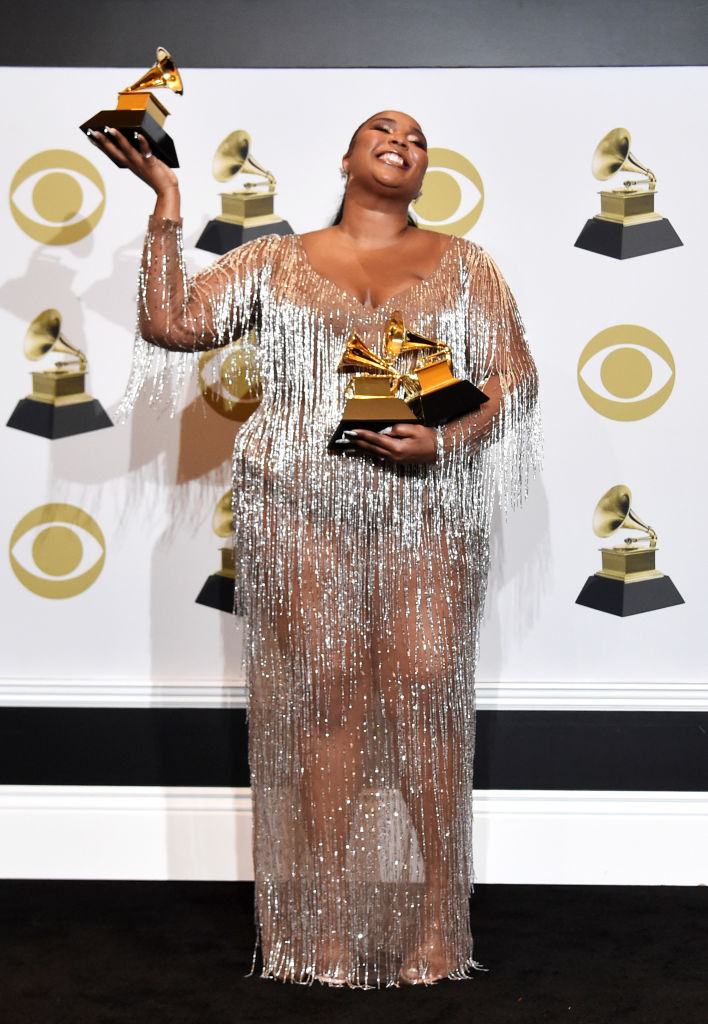Music
Grammys announces Major Changes to Awards Categories, Rules & Nomination Process

LOS ANGELES, CALIFORNIA – JANUARY 26: Lizzo, winner of Best Pop Solo Performance for “Truth Hurts”, Best Traditional R&B Performance for “Jerome” and Best Urban Contemporary Album for “Cuz I Love You (Deluxe)”, poses in the press room during the 62nd Annual GRAMMY Awards at STAPLES Center on January 26, 2020 in Los Angeles, California. (Photo by Alberto E. Rodriguez/Getty Images for The Recording Academy)
The Recording Academy, the organization behind the Grammy Award, has changed some category names and rules, among the changes are updates to the Best New Artist category, Latin, R&B and Rap Fields, Nominations Review Committees and more, which will go into effect for the 63rd Grammy Awards.
The Academy said in a statement that they “made major changes to several rules and guidelines that reflect its ongoing commitment to evolve with the musical landscape and to ensure that the GRAMMY Awards nominating process and rules are more transparent and fair”.
Harvey Mason jr., Chair & Interim President/CEO of the Recording Academy said:
I’m excited to announce our latest changes, as we’re constantly evaluating our Awards process and evolving it to ensure the GRAMMY Awards are inclusive and reflect the current state of the music industry. The Academy accepts proposals for rule changes from members of the music community throughout the year that are carefully reviewed and, if accepted, ultimately ratified at our annual Board meeting, a process that we are proud to have continued in this challenging year.
Bill Freimuth, Chief Awards Officer at the Recording Academy said:
As a peer-driven and peer-voted award, members of the music community are directly involved in the growth and preservation of the GRAMMYs process. Each year we receive a number of rule change proposals from artists, producers and songwriters asking us to reevaluate our process to better reflect the current state of the music industry and how it’s evolved over the past 12 months.
Here are new categories and rules going into effect for the 63rd Annual Grammy Awards.
-
“Best Urban Contemporary Album” will now be called “Best Progressive R&B Album” to “highlight albums that include the more progressive elements of R&B and may include samples and elements of hip-hop, rap, dance, and electronic music,” along with elements found in pop, Europop, country, rock, folk, and alternative
-
“Best Rap/Sung Performance” has been renamed “Best Melodic Rap Performance”. Recognizing both solo and collaborative performances, this category “requires a strong and clear presence of melody combined with rap cadence” and is inclusive of non-rap genres, such as “R&B, rock, country, electronic, or more.” So … very similar to Best Progressive R&B Album.
-
The Academy has combined “Best Latin Pop Album” with “Best Latin Urban Album” (Best Latin Pop or Urban Album), previously in conjunction with Rock and Alternative, “to migrate the genres of Latin urban and represent the current state and prominent representation in the Latin urban genres.” Best Latin Rock and Alternative will stick together.
-
Best New Artist category: There will be no specified maximum number of releases an artist can have to be eligible for this category. Screening committees will be in charge of determining whether or not the artist had attained a breakthrough or prominence prior to the eligibility year. If so, the artist will be disqualified.
-
Each member of a Nominations Review Committee must submit a conflict-of-interest disclosure form, noting connections with anyone who may directly receive a nomination or win, any direct financial ties to a recording or creator up for consideration, relationships with any artists, or other connections, actual or perceived. Conflicts will now result in removal, and failure to disclose will permanently bar them from the Nominations Review Committee.





















